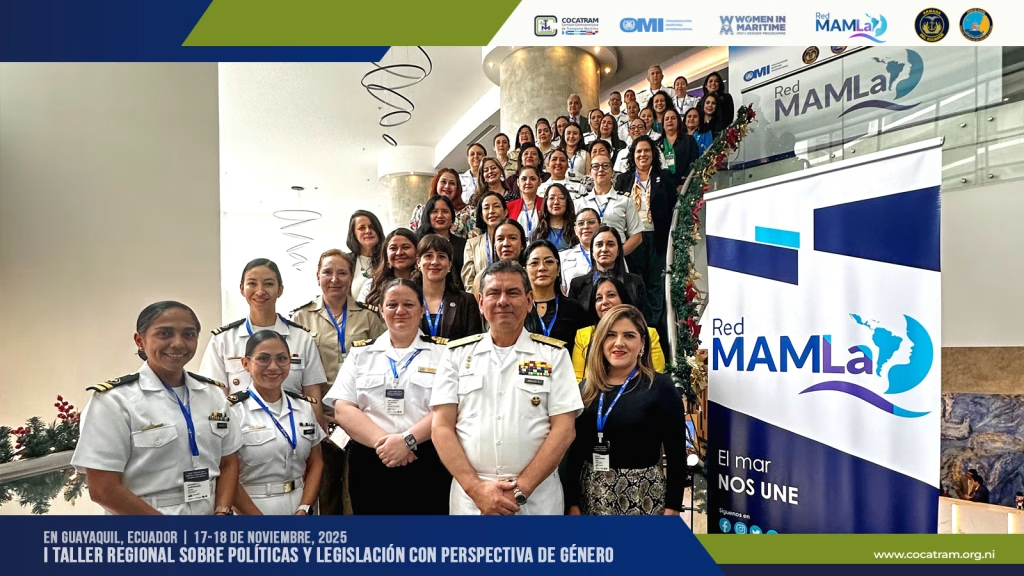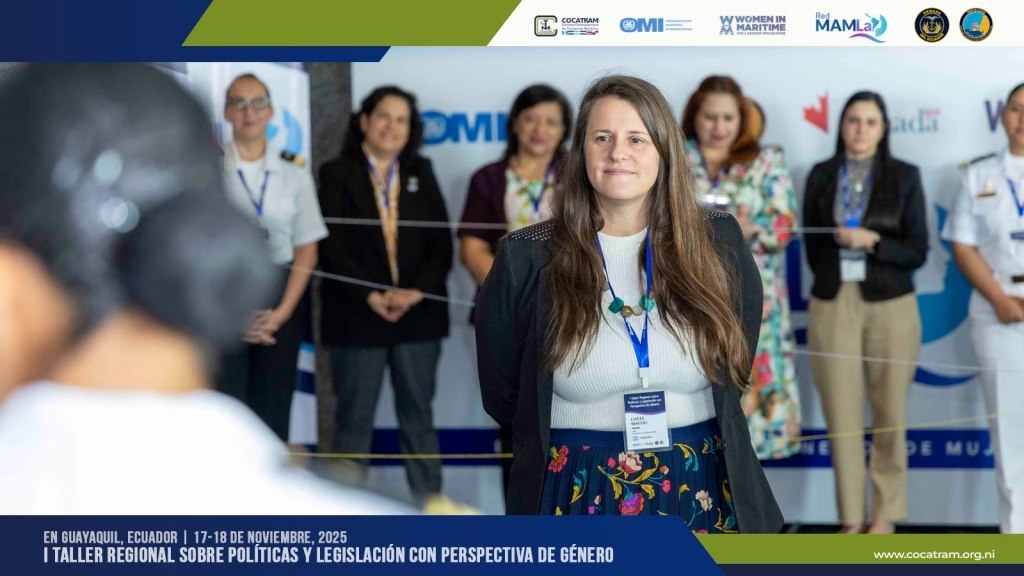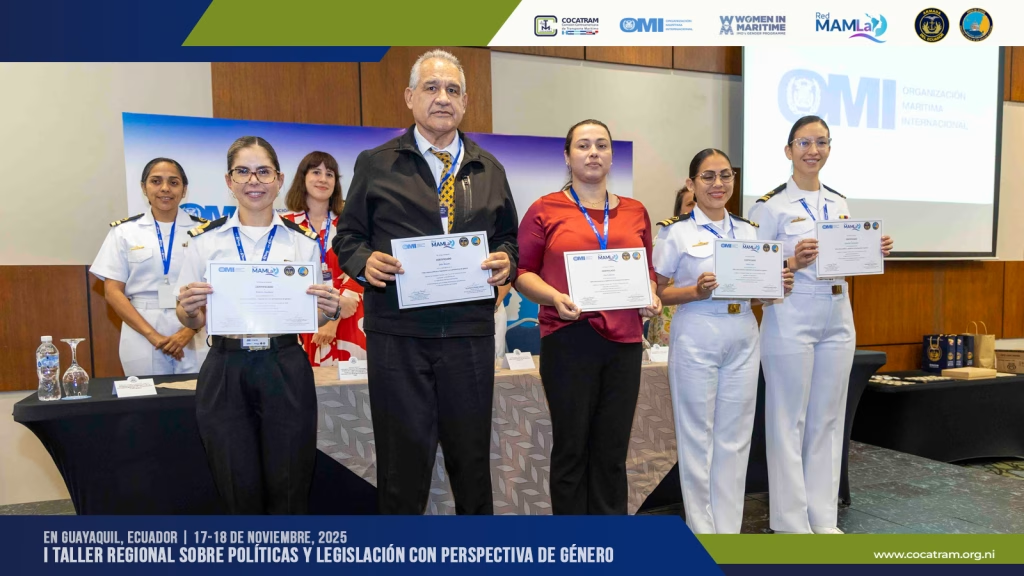
From November 17 to 18, the First Regional Workshop on Gender-Responsive Policies and Legislation was held in Guayaquil, Ecuador. The workshop was organized by Red MAMLa and the International Maritime Organization (IMO), with the support and leadership of Ecuador’s National Directorate of Aquatic Spaces (DIRNEA). The initiative also had the support of WILD Aid, DP World, Canada, and the State of South Korea.
The two-day workshop was led by Lucia Macoc (Argentina) and brought together delegations from the 19 Member States of the MAMLa Network, with the aim of strengthening the incorporation of a gender perspective in maritime and port policies in the region.

Within the framework of the Memorandum of Understanding with the IMO, the Central American Maritime Transport Commission (COCATRAM) provided logistical support, travel arrangements, and coordination with each of the participants, in close collaboration with Mariana Noceti, who leads the Woman In Maritime Program of this Organization.
Similarly, the participation of representatives from Central America ensured the institutional presence of REMPORT, guaranteeing the representation of the isthmus in this important technical forum.
The participation of COCATRAM and REMPORT in this first regional workshop is particularly relevant for Central American maritime governance for three fundamental reasons:
1.Strengthening regional maritime integration
COCATRAM is the technical body that coordinates maritime and port cooperation in Central America. Its participation ensures that discussions on gender equality are not isolated, but rather integrated into the regional agenda on maritime transport, security, ports, and sustainable development.
2.Regulatory consistency at the regional level
The presence of REMPORT—as a network that coordinates Port States—allows advances in gender-sensitive legislation to translate into uniform operational standards in the region. This includes inspections, working conditions, staff protection, and institutional mechanisms free of discrimination.
3.Promoting inclusive maritime policies
Joint participation ensures that gender policies are not limited to declarations, but are incorporated across key maritime platforms:
– Port State
– Maritime safety
– Port logistics
– Seafarers
– Technical training
These factors contribute to the development of fairer and more modern administrations that align with the vision of international organizations, such as the International Maritime Organization (IMO).
During the meeting, Laura Rivera, President of REMPORT, emphasized the importance of institutional support for the gender agenda in the maritime sector. “In my capacity as Pro Tempore President of REMPORT and as part of COCATRAM, we are strengthening the legitimacy of this workshop by showing that gender is an essential part of the regional strategy, not an incidental issue. Our presence sends a strong message of political and technical commitment to promoting women’s participation in the maritime sector.”

At the close of the workshop, participants reaffirmed their commitment to moving toward more inclusive, modern maritime governance that aligns with international standards. This is a significant step toward gender equality in the region’s maritime and port sectors.
#COCATRAM #REMPORT #RedMAMLa #OMI #IgualdadDeGénero #SectorMarítimo #ODS5 #TransporteMarítimo #GobernanzaMarítima #Puertos #LogísticaPortuaria #WomanInMaritime #Inclusión #DesarrolloSostenible #Centroamérica
